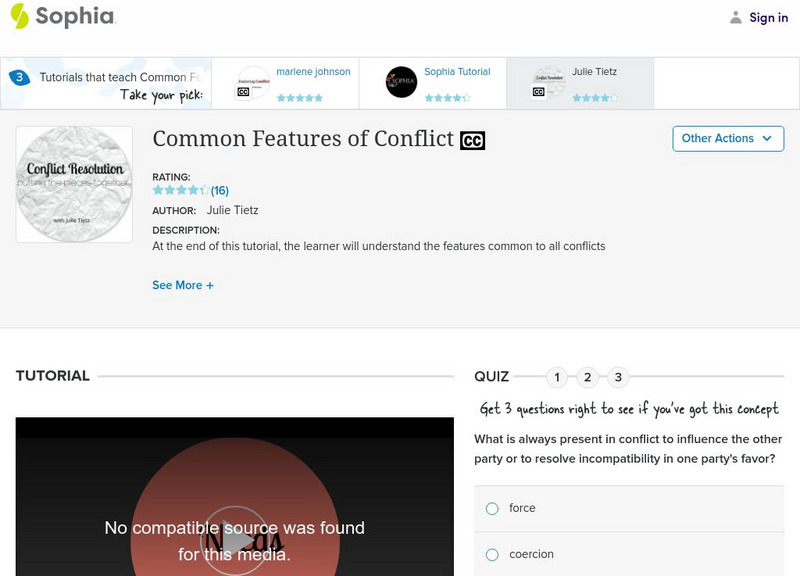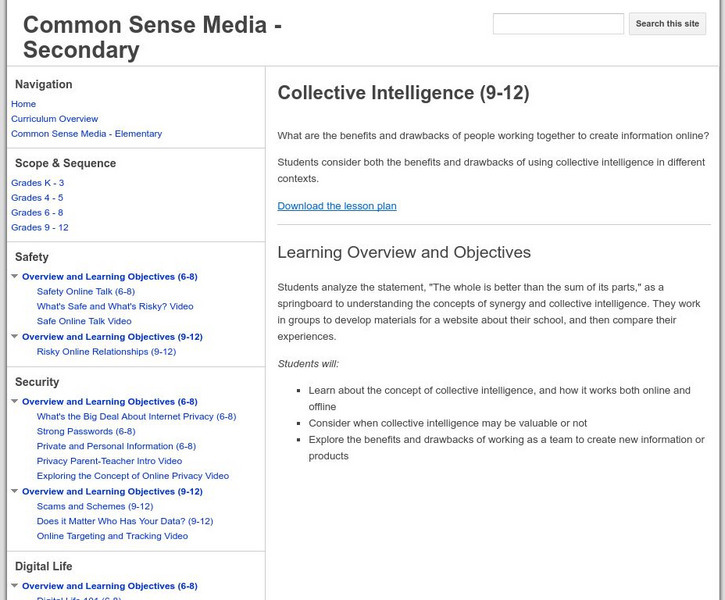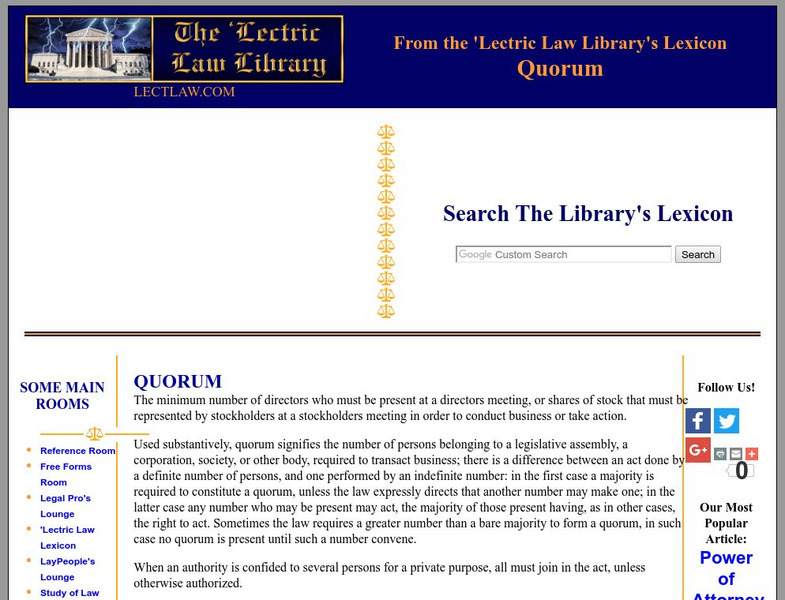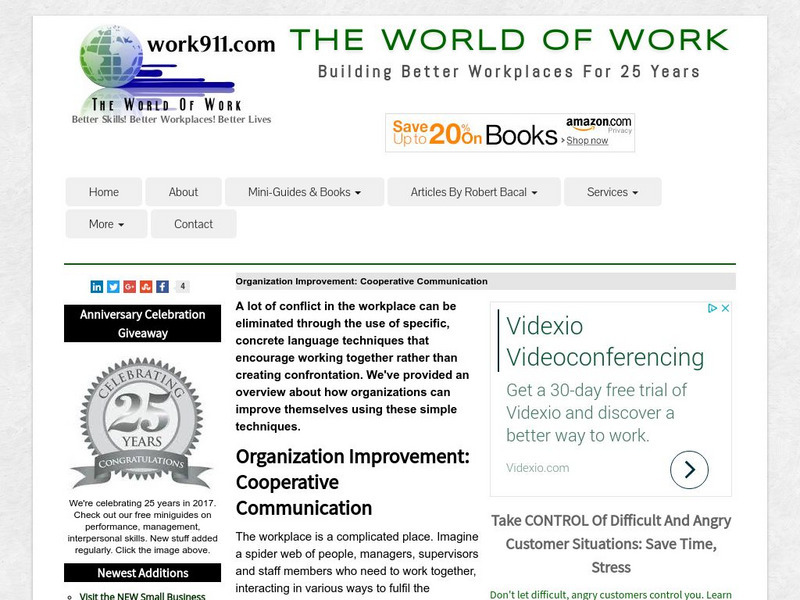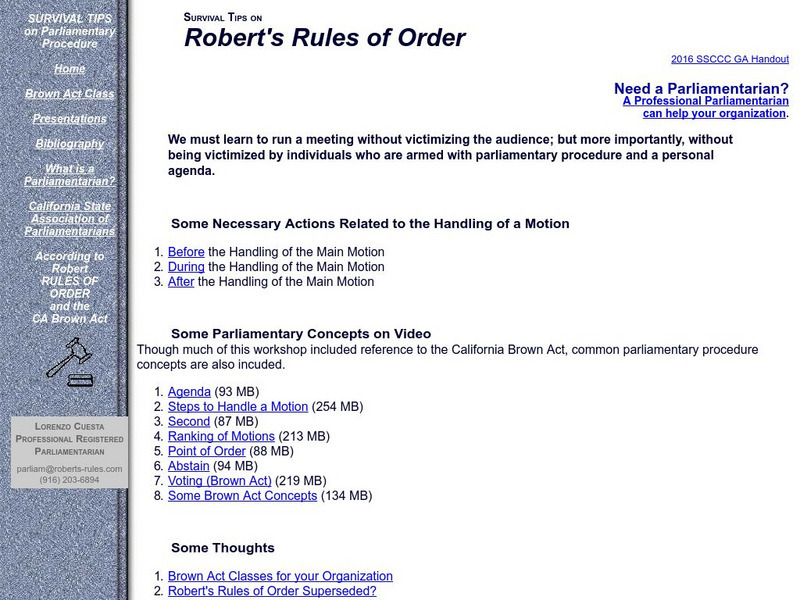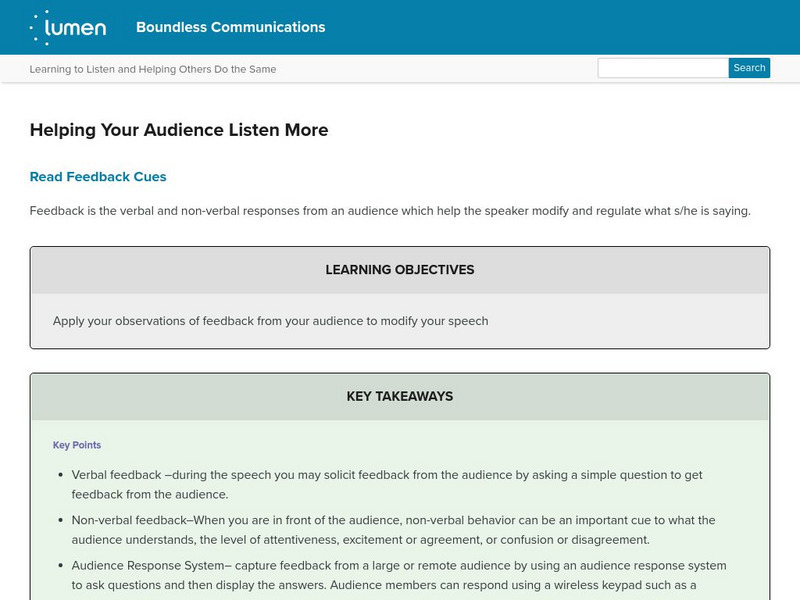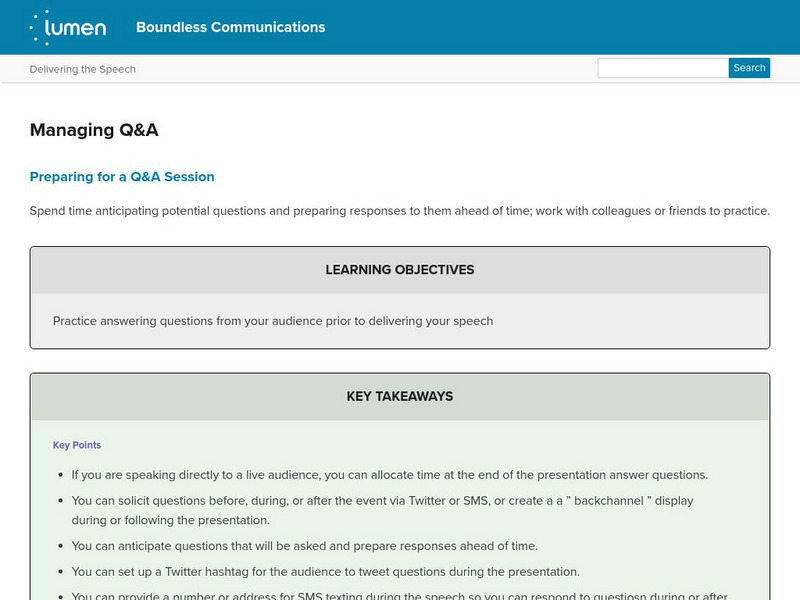Sophia Learning
Sophia: Common Features of Conflict: Lesson 1
At the end of this tutorial, the learner will understand the features common to all conflicts. It is 1 of 3 in the series titled "Common Features of Conflict."
Mind Tools
Introducation to Communication Skills
This article reveals the purpose of communication: to get your message across to others. This may seem elementary, but the process that involves both the sender of the message and the receiver is complex and can lead to confusion and...
Common Sense Media
Common Sense Media: Education: Collective Intelligence (Grades 9 12)
Students analyze the statement, "The whole is better than the sum of its parts," to understand the concepts of synergy and collective intelligence. They consider both the benefits and drawbacks of using collective intelligence in...
Scholastic
Scholastic: Writing Persuasive Letters
A lesson plan that prompts young scholars to write persuasive letters and lobby for issues they feel strongly about.
Biz Move
Biz Move: Overcoming Communication Barriers How to Overcome Noise in Communication
Discusses communication barriers, particularly in the work environment, and examines how to overcome them. Barriers discussed include noise, faulty feedback, poor media selection, mental barriers, poor word selection, time and space...
Other
Center for Human Systems: Team Conflict How to Manage It
This site describes different kinds of conflict that occur in groups, and then it provides information on managing those conflicts. SL.11-12.1b Group Rules, SL.11-12.1d Resolve/Synthesize
Lectric Law Library
'Lectric Law Library: Quorum
This site gives a legal definition of the term, Quorum.
Mind Tools
Mind Tools: Problem Solving Skills
Discover the four basic steps in problem solving: defining the problem, generating alternatives, evaluating and selecting alternatives, and implementing solutions. The first step, defining the problem, is discussed in detail. Links to...
Colorado State University
Csu Writing Guides: Working in Groups
Resource includes helpful advice and information about working together and writing in groups (collaborative writing). Provides nodes on such topics as purpose, ideas, decision-making, and more.
Other
Getting to the Point With Interest Based Negotiations
This site defines interest-based negotiation, gives an example, and provides five good negotiation habits.
Other
Work 911: Cooperative Communication
This site defines "Cooperative Communication" and provides examples and information as to how to apply it. Although the article is geared toward the workplace, it applies to all forms of communication, especially when negotiating....
Other
Focusing on Interests Rather Than Positions Conflict
This site contains six rules to follow that will reduce conflict and increase cooperation when negotiating.
Other
Negotiation Styles in Mediation
This article presents five styles or methods most often used by negotiators and methods of dealing with each.
Other
Survival Tips on Robert's Rules of Order
This site provides tips and guides to following Robert's Rules of Order in a practical setting. Content addresses many of the issues that come to pass during committee meetings and summarizes how Robert's Rules of Order addresses each...
Brown University
Brown University: Debates
Use this resource to learn how to engage in collaborative discourse and argumentation enhances student's conceptual understandings and refines their reasoning abilities. Be sure to click on the links to other resources.
Other
Inter Link: Achieving Effectiveness Through Team Communication
Article discusses how to achieve better team communication. Lists the components of team communication along with barriers to effective communication. Also provides a section on feedback. SL.9-10.1d Possitive Communication Stratagies,...
ReadWriteThink
Read Write Think: Conflict Map
This graphic organizer focuses on conflict: identifying the conflict, listing possible resolutions, and determining the cause of the conflict. It can be used as a reading tool, a writing organizer, or solving a real-life conflict.
University of Colorado
University of Colorado: Guidelines for Making the Program Work
The article provides guidelines that will help you avoid management problems.
University of Colorado
University of Colorado: Meetings That Deal With Conflict
The site provides guidelines for facilitating a meeting that deals with conflict.
Lumen Learning
Lumen: Boundless Communications: Elements of Speech Communication
This lesson discusses the elements of speech communication including the speaker, message, types of channels, audience, and feedback.
Lumen Learning
Lumen: Boundless Communications: Helping Your Audience Listen More
This lesson focuses on helping your audience listen better by offering strategies such as read feedback cues, employ strategies for maintaining audience focus, use strategies to maximize audience understanding, build credibility, and...
Lumen Learning
Lumen: Boundless Communications: Conclusion
This lesson focuses on writing the conclusion of your speech including the role of the conclusion, summarizing ideas, signaling the end, and managing Q&A.
Lumen Learning
Lumen: Boundless Communications: Understanding Language
This lesson focuses on understanding the language, both verbal and non-verbal, of your speech. It discusses the importance of language, word choice, purpose and audience, ways of thinking about language, venue and occasion, and delivery.
Lumen Learning
Lumen: Boundless Communications: Managing Q&a
This lesson focuses on answering questions after or during an informative speech including how to prepare for Q&A by anticipating questions and practicing with a friend or colleague and methods of receiving and answering the questions.


